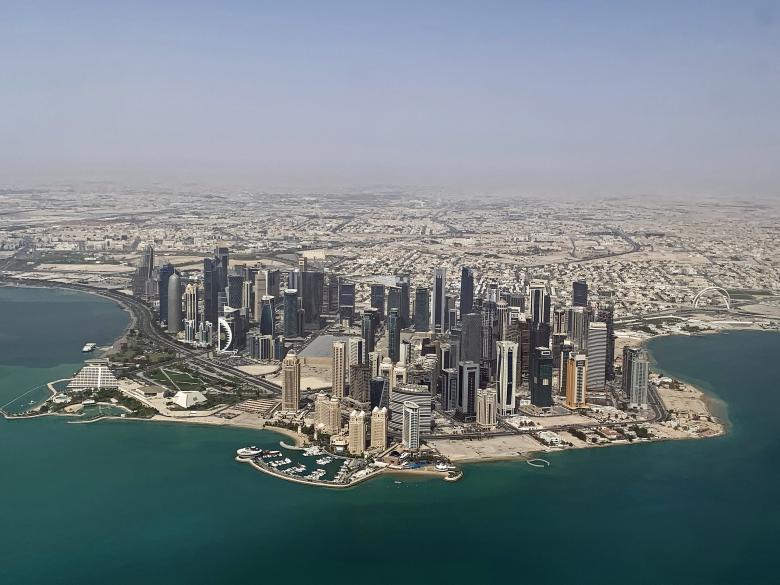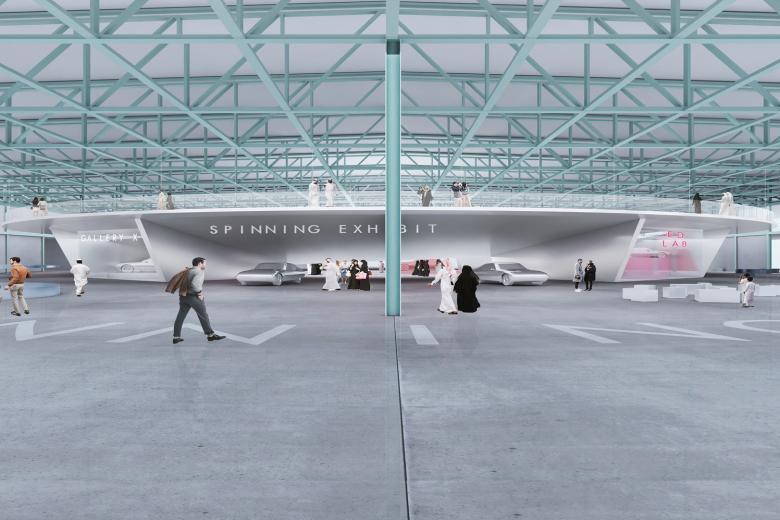Qatar Announces 3 New Museums
At the 2022 Doha Forum taking place over the weekend, Qatar Museums announced the development of three major museums, each one designed by a Pritzker Prize-winning architect.
Officially, the announcement was made by Sheikha Al Mayassa bint Hamad bin Khalifa Al Thani, chairperson of Qatar Museums, as a "strategy for investing in the creative economy to drive the next phase of development of Qatar," per a statement. Qatar Museums' portfolio of museums already includes the National Museum of Qatar (Jean Nouvel, 2019), the Museum of Islamic Art (I.M. Pei, 2008), and Mathaf: Arab Museum of Modern Art (2010), in addition to a few other galleries and "art spaces." The trio of new museums announced by Her Excellency are:
- Art Mill, designed by Alejandro Aravena/ELEMENTAL;
- Lusail Museum, designed by Jacques Herzog/Herzog & de Meuron;
- Qatar Auto Museum, designed by Rem Koolhaas/OMA.
Of the three, the first is not entirely new, as Aravena and his firm ELEMENTAL won a 2017 competition to design the Art Mill with a design inspired by the old Flour Mills on a site in Doha Bay, not far from Pei's museum. The apparent reboot of the delayed project will include exhibition and performance galleries for modern and contemporary art, dedicated spaces for learning and artist residency programs, production facilities, and a village for Qatari creative industries, among other facilities. Art Mill is, notably, the first museum designed by Arevana and his Chilean firm.
Arevana was one of the panelists at the Doha Forum event on Sunday, and he said about the project: "With the Art Mill, we are trying to trigger some consequences for local industry even before construction starts. The Art Mill will not just be a perfectly finished object but an opportunity for young designers, artisans, craftspeople in Qatar to come together to deliver the knowledge they have accumulated and contribute to the building, so that it not only houses a great collection but expands to more popular audiences."
The Lusail Museum is planned to house "the world’s most extensive collection of Orientalist paintings, drawings, photography, sculptures, rare texts, and applied arts," according to the statement. The design by Switzerland's Herzog & de Meuron will include more than 52,000 square meters of galleries, an auditorium, library, dedicated learning spaces, and more spaces across four floors.
Herzog, in attendance at the Doha Forum, said of their in-progress design: "As this project has gone forward, it has become more like what Qatar itself tries to be, which is a platform for exchange and debate — putting things on the table, and not just saying polite things. This debate aspect is important to a museum where the collection is about how the East and West has been in exchange about political, social, and cultural issues from long ago. That becomes the main topic. The building is a kind of vessel that inside has a complex topography, a clash of fragments of different places and functions. What we have learned during this process, to make space for that aspect of dialogue, is what will make the project important for Qatar and for us."
OMA, which is no stranger to Doha, having already built the Qatar National Library (2017) there, is designing the Qatar Auto Museum for a site, appropriately, along the Lusail Expressway, on the eastern edge of Doha. In addition to 40,000 square meters of permanent galleries "tracking the evolution of the automobile from its invention through today and how it has influenced culture in Qatar," the museum will have space for temporary exhibitions of high-profile vehicles, a classic-car restoration center, and other spaces. Koolhaas was not in attendance at the event over the weekend so provided no statement, but it remains to be seen if he will be designing the museum or if other OMA partners will take the helm, as is the norm these days.
The Doha Forum and the announcement of the three new museums took place before a week that will see the inauguration of the 3-2-1 Qatar Olympic and Sports Museum, which adjoins one of the stadiums that will host the World Cup later this year.

